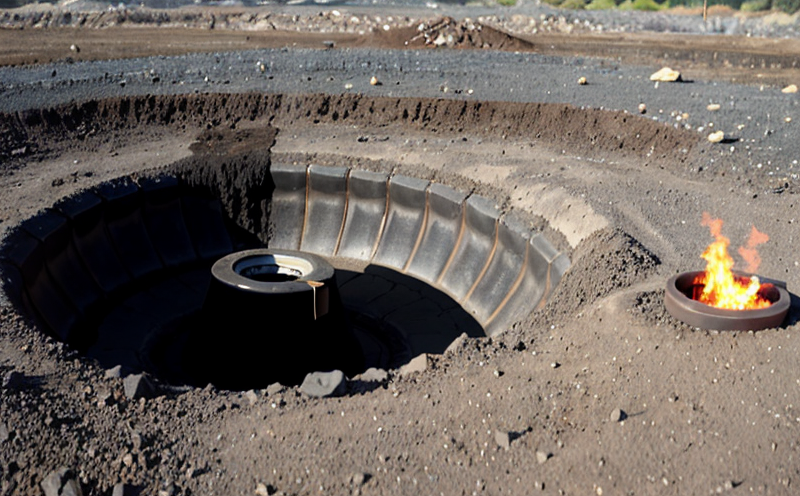ISO 11722 Moisture Content in Coal Testing
The ISO 11722 standard provides a method for determining the moisture content of coal samples. This is critical for ensuring accurate energy content and calorific value assessments, which are fundamental for quality control and compliance with international standards.
Coal moisture content can vary significantly depending on its source and type, making it essential to measure accurately at every step of the supply chain—from mining through transportation and storage to final use. This test is particularly important in sectors where coal is a primary fuel source or raw material for energy production, such as power generation plants, steel mills, and cement factories.
The ISO 11722 method involves drying the sample in an oven at specific temperature ranges until it reaches a constant weight. The difference between the initial wet mass and the final dry mass is used to calculate the moisture content percentage. This process ensures that any moisture-related issues are identified early, preventing potential operational disruptions or quality discrepancies.
The accuracy of this test directly impacts the reliability of energy calculations and compliance with environmental regulations. For instance, in power plants, accurate moisture content measurements ensure efficient combustion processes and prevent unnecessary fuel waste. In steel production, precise coal moisture content is crucial for optimizing furnace conditions and maintaining product quality.
In the context of international trade, ISO 11722-compliant testing builds trust between trading partners by ensuring consistent measurement practices. This standardization helps avoid disputes over delivered quantities or quality discrepancies that could arise from inconsistent testing methods.
For research and development (R&D) teams in the mining sector, understanding moisture content variations is vital for process optimization and innovation. By accurately measuring moisture levels during various stages of coal processing, R&D engineers can identify potential improvements in extraction techniques or storage solutions that enhance both efficiency and sustainability.
The ISO 11722 method also supports compliance with environmental regulations aimed at reducing emissions from fossil fuel combustion. Accurate moisture content data helps in calculating the actual heat input during burning processes, which is essential for meeting emission targets set by international agreements like the Paris Accord.
In summary, the ISO 11722 standard plays a pivotal role in ensuring consistent and accurate measurements of coal moisture content across various industries. Its application enhances operational efficiency, supports quality control initiatives, and contributes to environmental sustainability efforts worldwide.
Industry Applications
- Power generation plants to ensure efficient combustion processes.
- Steel mills for optimizing furnace conditions and maintaining product quality.
- Cement factories in optimizing kiln operations and ensuring consistent raw material supply.
- Shipping and logistics companies involved in international coal trade.
- Research institutions focusing on sustainable energy solutions.
- Environmental agencies monitoring emissions from fossil fuel combustion.
International Acceptance and Recognition
The ISO 11722 standard has gained widespread acceptance across numerous industries worldwide. Its broad adoption reflects its reliability and robustness in providing consistent moisture content measurements for coal samples.
In the power generation sector, compliance with this standard ensures that all parties involved—from mine operators to end-users—are working towards common benchmarks. This facilitates smoother international trade transactions and reduces misunderstandings related to quality discrepancies.
The standard is also recognized by various regulatory bodies, including those responsible for environmental protection and safety standards. By adhering to ISO 11722 guidelines, organizations demonstrate their commitment to maintaining high-quality standards in coal-related processes.
Moreover, the international recognition of this standard fosters collaboration among different stakeholders within the mining industry. It promotes best practices that contribute to global sustainability goals and helps establish a level playing field for fair competition across borders.
Use Cases and Application Examples
In practice, ISO 11722 moisture content testing is conducted at different stages of the coal supply chain. Here are some specific use cases:
- Mine Site Sampling: Samples collected directly from the mine face undergo initial drying and analysis to ensure that they represent the overall quality of the mined coal.
- Storage Facilities: Periodic testing is performed in storage facilities to monitor any changes in moisture levels due to environmental factors or handling practices.
- Transportation Logistics: Samples are taken during transportation and analyzed to verify that there has been no unintended contamination or degradation.
- Power Plants: Moisture content is continuously monitored at power plants to adjust combustion parameters for optimal performance and efficiency.





